It is now a month before Rosh Hashana, and for the first time in my life my father will not be at my table to wish us Darleibn Ibar a Yor – A Git Yor, a Zis Yor! (Let’s all live till net year and have a good and a sweet year). I am already anxious to the point that I am contemplating spending holidays with children, rather than cook and have guests at home. Therefore, before I start on a set of holiday recipes, I am repeating this post that describes Shloshim (30 days after my father’s passing).
If you think of it as an Israeli version of frittata, you are close. Both contain eggs and both resemble a crustless quiche. Some even call it an Israeli crustless quiche. The history of it, however, takes us way back before the modern State of Israel, to the times of young David, already anointed as a king but not yet enthroned, and running for his life. During his travels, having assembled a small but brave and powerful group of followers, he runs afoul of Naval, a wealthy landowner described as a brutish, uncouth, and generally obnoxious guy. Drunk and ill-mannered, Naval insults the future monarch. His wife Avigail, upon hearing that David with his soldiers is on his way to exact retribution, rushes to intercede. Being not only one of the four most beautiful women in the world, as she is described in Prophets (Shmuel 1), but also very intelligent (ibid.), she doesn’t come empty-handed.
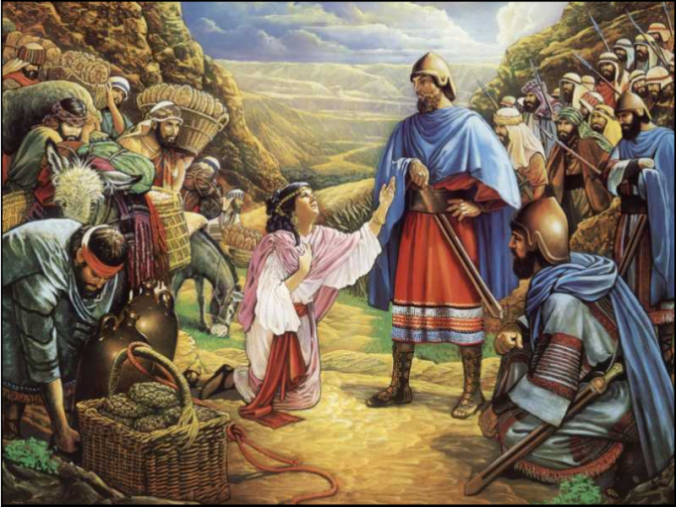
Shlepping baskets laden with food and unloading huge jugs of wine from poor donkeys’ backs, her servants also serve pashtidas described by Rashi as a type of meat pastry, or baked “basket” filled with ground meat and eggs. This resembles Roman pasticcio, or German pastele, or Spanish pastelito, or even Polish pasztet. Avigail, apparently, uses the meat of five sheep to prepare pashtidas for David’s entire small army with her own hands. Sated and mollified, David abandons his vengeance, Naval soon dies anyway, David marries Avigail (more for her sage council than her beauty, says the Gemorrah), eventually ascends the throne, and pashtida truly becomes “a feast fit for a king.”
In today’s Israel, pashtida is much more likely to be meatless, sometimes dairy, but most of the time pareve, and is sometimes called an Israeli kugel. As such, it is often served not only as breakfast or appetizer, but also as a side dish on Shabbos and Yom Tov. I had it for the first time at my son’s Shabbos table, prepared by my daughter-in-law who is as beautiful and intelligent as Avigail. My husband and I loved it, and I was told that all there was to it, was a bunch of different veggies mixed with eggs and flour and baked. Which veggies? Whatever you have in your fridge or freezer. More like a French pastiche, or Yiddish wus in der kurt, i.e. a hodgepodge of various ingredients.
Since then, I’ve made it a few times, once even for a shul Shabbos dinner, and it was a hit. Therefore, when the time came to do Shloshim for my father, and we decided to do it in shul, rather than at home, and to do it on Sunday morning rather than afternoon, I made a pashtida. Since it is often accompanied by matbucha, an outrageously spicy cooked tomato salad, my daughter-in-law gave me that recipe as well.
Before I get to the actual recipe, I want to express my deepest gratitude to Rabbi Shragi and Mrs Devorah Leah Mann, and the entire community of South Beach Chabad for their support during this most trying time of my life. Losing my father was, and still is, a wound so deep that it has taken me almost two month to get up the nerve to write this post. If you notice, I actually did a whole Shavuos set of posts before getting to this one. We have videotaped some of the speeches commemorating my father, but you can skip them, if you wish, and scroll down to the recipe.
Here is Rabbi Mann giving a Dvar Torah and offering a lechayim in memory of my father.
The quality of it is dismal because I was crying more than taping, and for the same reason my speech will not be posted. My husband’s speech, however, is a great tribute to a man who loved him for being “so very kind.” Coming from my father who was the kindest person I’ve ever known (after his mother, my grandmother), this was the highest compliment.
Here is the conclusion of it.
Everyone knows Dovid as our son, and some people even say that he resembles me, but in his speech he mentions that he is adopted, and that his adopted grandfather had always treated him as a grandson. Some of the best pictures we have of my father are the ones taken at Dovid’s wedding and at the Bris Milah of Ariel, Dovid’s son and my grandson. Here is Dovid who came into our lives not as a baby, but as a teenager.
I am also deeply touched by the care and support of my family and friends, both those who were physically present at the Shloshim, and those who showered me with phone calls, e-mails, and text messages. My beautiful people, my students, in groups and individually, sent me cards and e-mails, expressing their condolences to a professor who abandoned them on the week of final exams. My colleagues and my department chair went above and beyond the call of duty to help in every way. Both medical and administrative staff of Elite Health Group were accessible literally day and night by phone, text, and e-mail, relentless in their efforts to save my father’s life. Last but not least, the staff of South Pointe Plaza Rehabilitation & Nursing Center, the best choice of a facility one could ever make if the need arises, not only provided the most qualified and compassionate care to my father, but also have supported me in my grief and are supporting me still.
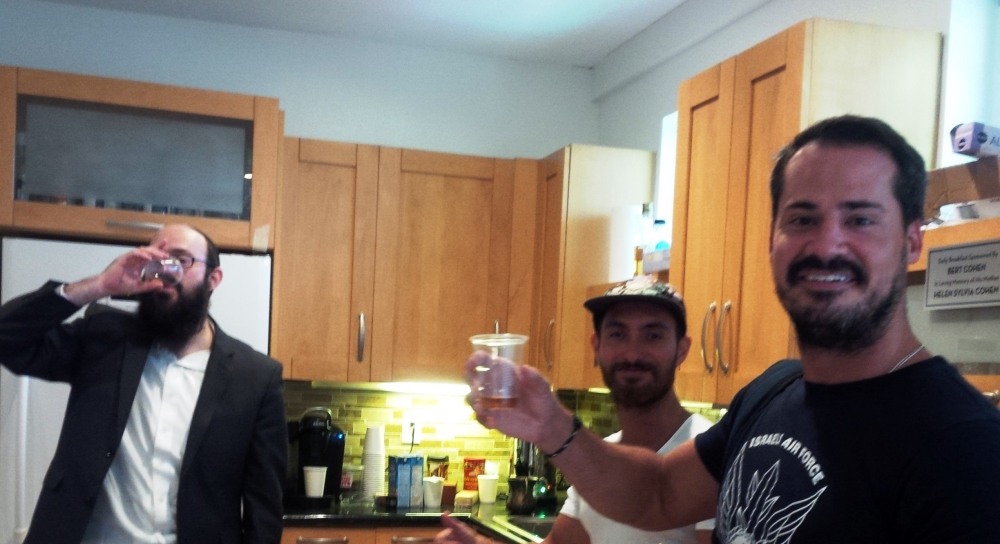
One more lechayim in memory of my father, and I am ready to start with the recipe. For this one, I used frozen mixed vegetables, broccoli, cauliflower, and carrots. If fresh vegetables are used, they need to be cooked, or at least steamed, first.
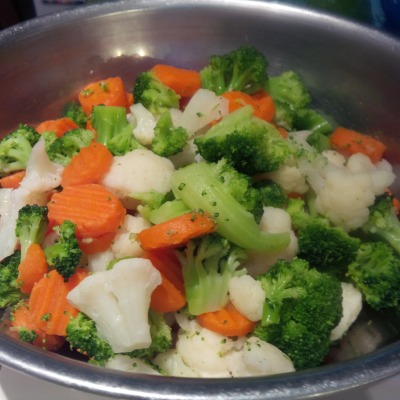
Any vegetable or a combination of your choice will do. When the veggies are ready (if cooked or steamed, they should be cooled off), mash them up or pulverize them in food processor.
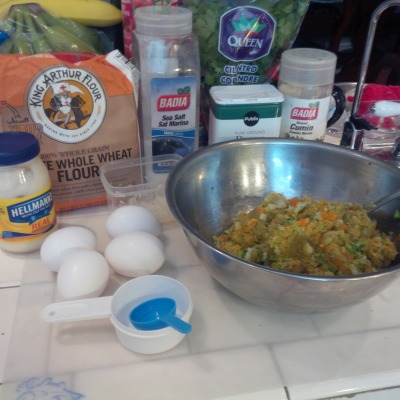
I’ve seen some pashtida recipes that included grated or minced onion, either raw or sauteed. I prefer not to, but it’s up to you. After all, it’s just a jumble of anything you like. You do need eggs and flour, however (I use whole wheat), salt and pepper, a little olive oil, and some cumin and cilantro for Mediterranean flavor. For a vegan variation, egg substitute of your choice could be used. To make it pareve, I use a bit of light mayo, and for a dairy version, sour cream or Greek yogurt should be used. All this is added to processed veggies and mixed together.
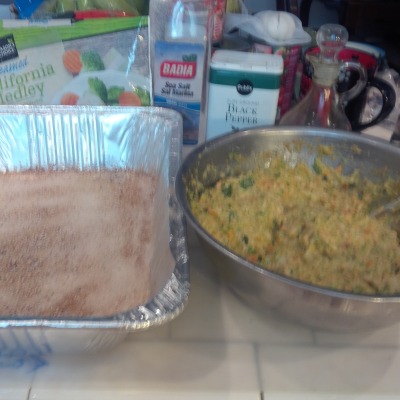
Although there is no crust, I have found by trial and error that spreading a very thin layer of breadcrumbs or matzoh meal on the bottom of a lightly oiled baking pan prevents pashtida from sticking and makes it easy to remove when done.
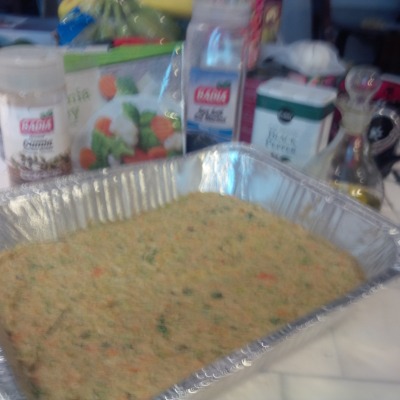
The mix is spread evenly in the baking pan and goes into the oven until a golden crust is formed. When done, remove it, let it cool completely, and cut into squares inside the pan. Lightly oiling your knife will make it easier and cleaner.
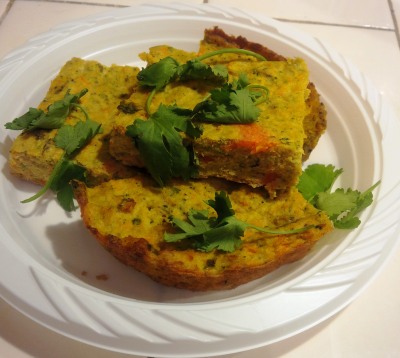
As you serve it, garnished with fresh cilantro and accompanied by matbucha, perhaps you’d want to drink a little lechayim to the memory of a beautiful person, my father, Shimon ben Dov Ber.
Links to related posts: Hello, Beautiful People! and My Shavuos Menu.
INGREDIENTS
- 1 lb vegetables, frozen or cooked/steamed
- 2 eggs or substitute
- 2 tablespoons whole wheat flour
- 1 tablespoon olive oil
- 1 tablespoon mayonnaise
- Optional 1/2 grated/minced onion, raw or sauteed
- Breadcrumbs or matzoh meal to line baking pan
- 1/4 cup chopped fresh cilantro
- Cumin, salt and pepper to taste
PROCEDURE
- Preheat oven to 400.
- Mash vegetables or use food processor to achieve consistency of mashed potatoes.
- Add remaining ingredients and mix well.
- Lightly oil baking pan and line it with a thin layer of breadcrumbs or matzoh meal.
- Bake uncovered for 45 minutes or until golden crust is formed.
- Remove and cool completely. Cut in pan before plating.
MATBUCHA
- Put 5 large tomatoes (or 1 28 oz can of diced tomatoes) into food processor, add 1 or 2 chopped jalopino peppers – depending on how hot you can take it! – with 2 or 3 garlic cloves, salt, cumin, and paprika to taste. Process until blended well.
- Transfer to a pot, bring to boil, reduce to simmer. Stir once in while to prevent from sticking. When liquid starts evaporating, add a tablespoon of olive oil, stir and simmer for a few more minutes.
- Remove, cool, and serve on its own or to accompany pashtida and similar dishes.
Enjoy!
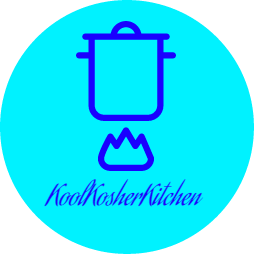
You bet we “love pancakes!” I cannot wait to see how you mix this into a pancake recipe. I for one learned something new today including about a hangover cure. 🙂
LikeLiked by 1 person
Pancakes are about #4 on my project list, but wait! A chocoberry breakfast cake is #2, and clabber is in it, too. Coming up soon!
LikeLike
Reblogged this on koolkosherkitchen.
LikeLike
I love how you bring stories from ancient times and tie them to your recipes. I would love to hear more about Jewish foods that originated in biblical or post biblical times, if you know of any. Thanks 🙂
LikeLiked by 1 person
Dear Tali, I am really glad you like my posts, and I really appreciate your interest. As we get closer to the holidays, I will be posting my holiday recipes, with the stories, of course! Thank you so much for stopping by!
LikeLiked by 1 person
Looking forward!
LikeLiked by 1 person
I’m sorry to hear of your father’s passing. He sounds as nice as mine was. Thank you for making a home for Dovid, and a space in your hearts for him. It’s nice to know he is now part of his own family. His wife’s recipe for matbucha sounds like something I’d like to try. I bet your recipe goes great with it. I said a l’chaim also for your Dad’s memory. It was a mitzvah that you posted that, as it felt like we celebrated community and continuation, together. Hineh mah tov umanayim, shevet achim gam yachad!
LikeLiked by 2 people
I thank you for your kindness and your support! I also thank you for Hineh mah tov – it brings back incredible memories of singing it at the train station, in front of the KGB informers, seeing off those lucky friends who were allowed to leave Communist Russia and make Aliyah…
LikeLike
You could/should write a book about all that!
LikeLiked by 1 person
I probably should, but I can’t bring myself to do it. Too overwhelming!
LikeLike
Yes, really. But, it would be a nice permanent record for the grandchildren. Actually, all your posts together would make a great book, because there’s all the diversity, with the recipes, and history lessons, and family stories, etc. You already have it.
LikeLiked by 1 person
Thank you again for words of encouragement. I am working on morphing my posts into a cook book, about 2/3 done. Actually, I have written a short novel “My Grandmother’s Recipes” that started as a collection of recipes and turned into something else. My son translated it into English and included in his anthology of translated works of Russian post-modernist writers called “The Times of Turmoil.” Hopefully, this one will actually be a cook book!
LikeLike
I bet the entire anthology is engaging throughout! After reading your reply Friday, “cookbook” popped into my head, as well!
LikeLiked by 1 person
The anthology was my son’s undergraduate fellowship project. With that, he was accepted to Brown and to Harvard, at which point he raised his nose way up and declared that Harvard would no allow enough creative freedom. So his doctorate is from Brown. Do I have the right to brag a little? As a Jewish mother…
LikeLike
Do you ever! And such a literary family! Wow! That’s amazing! Kol HaKavod.
LikeLiked by 1 person
Toda Raba! Genetics…
LikeLike
I am so sorry that I missed this post. It was during our move. 1. This is a great recipe. 2. You have a beautiful family and a wonderful legacy of love and faith. Thank you!
LikeLiked by 1 person
Thank you so much for your kind words about my family! I am trying to be joyful on Chanukkah but it is a challenge, as this is when my father’s illness started last year, he spent the entire Yom Tov in the hospital, and from that point on he just went down and down…
LikeLiked by 1 person
Dolly – this is very moving. I watched the videos. Your father sounds like a very special man.
On a lighter note, I love making pashtidot because they’re easy to make and very tasty 😋
Shavua tov,
David
LikeLiked by 1 person
Thank you so much for your kindness and empathy, David.
Until I had pashtida made by my daughter-in-law, I had thought it was a kugel. What do I know…
LikeLiked by 1 person